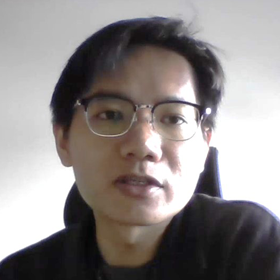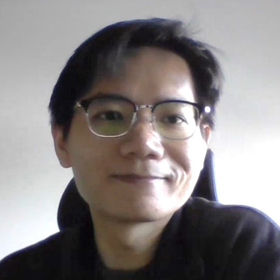Key person interview

A 3-Year Journey from Laboratory to Clinical Trials
Assistant Professor at Duke-NUS Medical School
Jason Chan, MBBS, MRCP (UK), MMed (Internal Medicine), FAMS (Medical Oncology), PhD (Cancer Biology)
Question 1. Research Progress from 2022 to 2024
BCV was initially developed as an antiviral drug, but in 2020, its efficacy against cancers, including lymphoma, was discovered. At the National Cancer Centre Singapore (NCCS), research began with in vitro studies using NK/T-cell lymphoma cell lines, followed by validation of these results in mouse models, as well as extensive studies on its mechanisms of action. These findings were presented orally at the American Society of Hematology (ASH). Subsequently, research continued to explore the effects of BCV on various lymphoma subtypes, culminating in presentations at major conferences such as AACR (American Association for Cancer Research), EHA (European Hematology Association), and ASH in 2024. These presentations revealed that BCV exhibited potent activity across various lymphoma subtypes, including peripheral T-cell lymphoma (PTCL) and numerous B-cell lymphomas.
Question 2. Details of Presentations at Major Conferences
AACR (American Association for Cancer Research) 2024
At AACR, the world’s largest cancer research conference, data was presented on BCV's efficacy against B-cell lymphomas, particularly diffuse large B-cell lymphoma (DLBCL), the most common subtype that remains challenging to cure for many patients. BCV’s activity was confirmed in over 15 B-cell lymphoma cell line models, and its robust efficacy was also demonstrated in mouse models. Furthermore, the mechanisms by which BCV inhibits several key cancer signaling pathways in B-cell lymphomas were elucidated.
EHA (European Hematology Association) 2024
At EHA, Europe’s largest hematology conference, BCV’s activity against peripheral T-cell lymphoma (PTCL) was highlighted. PTCL is a difficult-to-treat disease globally, especially in Asia, where effective treatments are limited. BCV showed high activity in PTCL cell line models and demonstrated significant efficacy in mouse models. In particular, mouse models using the most aggressive PTCL subtype, anaplastic large cell lymphoma (ALCL), confirmed BCV's potent activity. The mechanisms by which BCV inhibits key oncogenic signals in PTCL were also clarified.
ASH (American Society of Hematology) 2024
At ASH, data on BCV’s efficacy across various lymphoma subtypes, including NK/T-cell lymphoma, PTCL, and B-cell lymphomas, was presented. The latest findings suggested the potential for combination therapy with immune checkpoint inhibitors (ICIs). BCV was shown to not only inhibit cancer signaling pathways but also induce immune responses through a unique mechanism of action. In cell line models, activation of several key immune and inflammatory signaling pathways was observed, and in mouse models, BCV treatment, particularly in combination with anti-PD-1 antibodies, led to immune cell accumulation within lymphoma tumors. These data suggest significant potential for future clinical trials involving BCV in combination with ICIs such as anti-PD-1 antibodies.
Question 3. Expectations for Clinical Trials

Based on collaborative research between NCCS and SymBio Pharmaceuticals, clinical trials of BCV for lymphoma have commenced. This marks an exceptionally rapid progression from preclinical studies in 2022 to clinical trials in just three years. Backed by robust preclinical data obtained from over 40–50 patient-derived lymphoma cell line models and various mouse models, favorable outcomes in clinical trials are anticipated. BCV has the potential to be approved as a treatment for various lymphoma subtypes, including PTCL, NK/T-cell lymphoma, and DLBCL.
Question 4. Applications to Solid Tumors
BCV has demonstrated not only its ability to inhibit various viruses such as Epstein-Barr virus (EBV) but also efficacy against EBV-negative cancers. Its mechanism of action includes the inhibition of key cancer signaling pathways, such as the MYC oncogene, and the induction of immune responses. Based on the success in lymphoma, BCV is expected to be applied to other cancer types. Further collaborative research with SymBio Pharmaceuticals is being advanced to explore these applications.
Question 5. Future Collaborative Research
Early-phase clinical trials are currently underway in Japan and Singapore, with plans to expand to late-phase trials. Regulatory approval in Japan, Singapore, and other countries is anticipated. NCCS aims to strengthen its partnership with SymBio Pharmaceuticals and further investigate BCV’s mechanisms of action in other cancer subtypes, including solid tumors.
Question 6. A Message to SymBio Pharmaceuticals
This year will be an exciting one for both NCCS and SymBio Pharmaceuticals. Reflecting on the past three years of collaborative research, we extend our best wishes for SymBio’s future success. The success of the clinical trials will be a wonderful opportunity to celebrate our shared achievements and progress. We sincerely thank the dedicated members of SymBio Pharmaceuticals who have closely collaborated with the NCCS team over the past three years. Without their strong support, ongoing discussions, and cooperation, these achievements would not have been possible. We deeply appreciate their continued trust and support.
